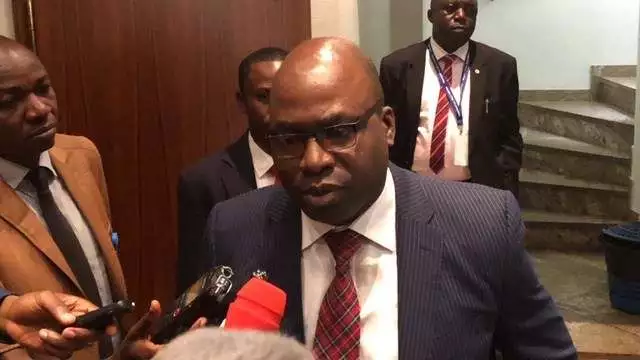The Chairman of the Independent Corrupt Practices and Other Related Offences Commission, (ICPC, Bolaji Owasanoy has revealed how government contractors collected a whopping N310 billion for various projects and later abandoned sites. The projects, scattered across the country have now been completed due to the efforts of the anti-graft agency.
Recalled that the agency, last month, revealed it had recovered 301 houses from two public servants in the nation’s capital, Abuja as part of its ongoing efforts in fighting graft in the country.
Owasanoye, who spoke at an anti-corruption event in Abuja, the nation’s capital, also disclosed that federal government ministries and parastatals duplicated over 250 projects amounting to N20 billion in the 2021 budget.
According to him, the commission tracked 1083 projects across 34 states in the country and the Federal Capital Territory, FCT.
He explained that the ICPC forced 67 contractors back to site and ensured completion of 966 projects worth N310 billion some of which were hitherto abandoned.
Owasanoye said the commission’s “findings indicate that the same malady of corruption afflicts executive as well as zip projects thus undermining government projections, escalating the cost of governance and denying Nigeria value for money.
“These maladies include poor needs assessment that disconnects projects from beneficiaries; false certification of uncompleted contracts as completed, deliberate underperformance of contracts, incessant criminal diversion and conversion of public property by civil servants, to name just a few.
“Other challenges relate to duplication of projects in the budget. ICPC review found that 257 projects amounting to N20.138bn were duplicated in the 2021 budget leading us to submit an advisory to the Honourable minister of finance which was promptly actioned by the minister to prevent abuse.”
Speaking last month on how public servants have acquired massive estate with illicit funds stolen from the government, the agency said “public officers acquire estates in pseudonyms to conceal the illegal origin of funds.
“This is made possible by the absence of proper documentation, the registration of titles to land and estates in the country and the non-enforcement of beneficial ownership standards.
“A tour round Abuja, especially the metropolis and the Central Area, would show a lot of estates that are built up but empty. If they had been constructed with funds that were borrowed at market rates, I don’t think any investor would leave such proprieties empty.
“One way or the other they would put them to use. So, it is suspected that some of those estates have been used to launder ill-gotten public funds.”
Discover more from The Source
Subscribe to get the latest posts sent to your email.








